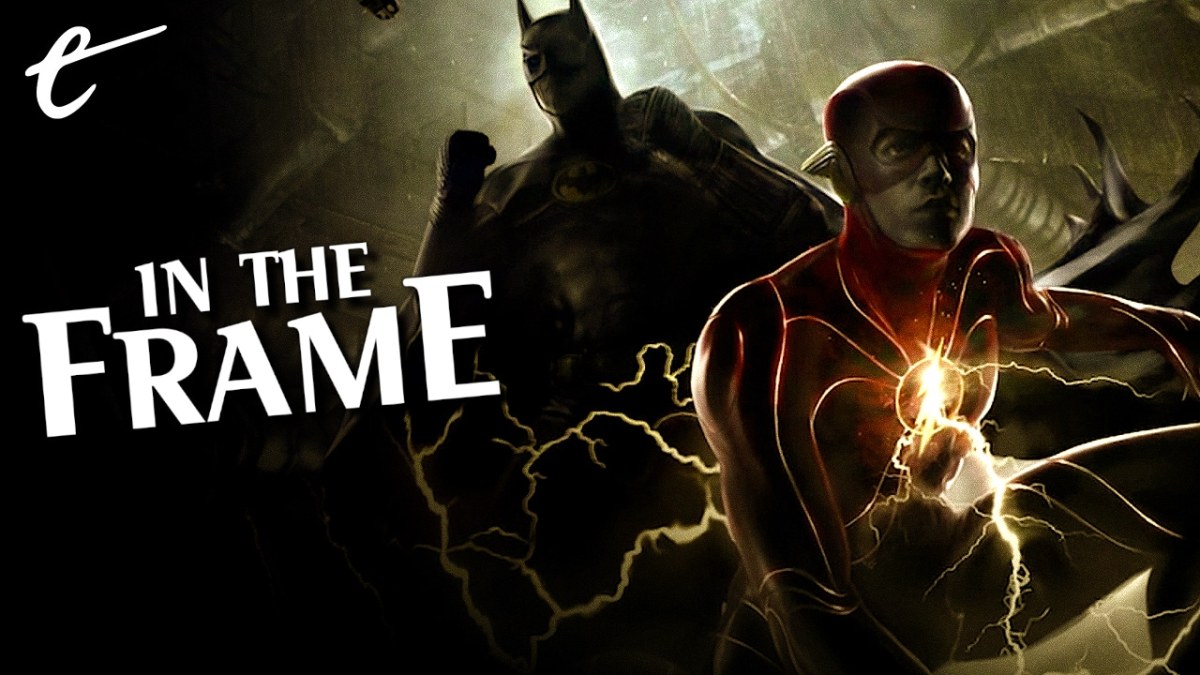If the rumors that are currently circulating about the upcoming release of The Flash turn out to be true, maybe shared universes simply aren’t worth the hassle.
The Flash has had a particularly storied production history. Following the release of Man of Steel, Warner Bros. initially planned for The Flash to be one of the first wave of movies in its DC Extended Universe (DCEU). It was originally intended to be released before Justice League, with a target date of 2016. It did not hit that target. The project lost multiple directors along the way, including Seth Grahame-Smith, Rick Famuyiwa, and duo John Francis Daley and Jonathan Goldstein.
Although there have been multiple pitches suggested for the film, including one from star Ezra Miller and comic book writer Grant Morrison that was ultimately rejected, discussions keep circling back to Flashpoint. Put simply, Flashpoint was a 2011 comics event in which the title character abused his powers in such a way as to rewrite the internal continuity of the DC Universe. The comic ended with the character effectively resetting comic book continuity, leading to the launch of “the New 52.”
There is some indication that the upcoming Flash movie will serve the same purpose for the tangled continuity of the DCEU. The recently confirmed cast list includes actors Michael Shannon and Antje Traue from Man of Steel, suggesting that the Flash will travel to the events of the first movie in the series. The cast will include both Michael Keaton and Ben Affleck as two different versions of Batman, with Keaton recently confirmed to be carrying on into the Batgirl film, suggesting a continuity reset.
Recent reported leaks suggest that The Flash will serve as a reset button for the larger DCEU, allowing Warner Bros. to effectively keep what it likes and discard what it doesn’t. This puts the company in a pretty bleak situation, effectively having to construct an elaborate and expensive blockbuster to serve the purpose of adjusting its larger shelf of intellectual property. In some ways, it demonstrates the folly of the shared universe as a cinematic concept.

Hollywood has been obsessed with the prospect of “the shared universe” since the success of The Avengers in 2012 demonstrated that Marvel Studios could use continuity and fan loyalty to propel a bunch of then-B-list characters to the top of the annual box office. Theoretically, a shared universe is a rising tide that can lift all boats, leading to a situation where a joke character like Ant-Man (Paul Rudd) can headline a $519 million movie, outgrossing a Terminator sequel and a beloved Mad Max movie.
As Marvel built the most successful film franchise in history, other studios regarded the shared universe with envious eyes. Neither slowly nor surely, they drew their plans. The decade would be decorated with the burnt-out remains of failed universes: the Dark Universe, the King Arthur universe, the Robin Hood universe. Those that stumbled into being were often modest successes at best: the LEGOverse, the Monsterverse, the Sony Pictures Universe of Marvel Characters.
It is perhaps revealing that the second most successful shared universe of the 21st century has been the Conjuring universe — the series of interlinked horror movies and franchises overseen by James Wan. It spans eight movies across four separate sub-franchises, has grossed $2.1 billion on a combined $179 million budget, and never required the sort of retooling and course correction that led to something like Joss Whedon’s Justice League. However, few people really discuss it as a shared universe.
Of course, shared universes are easier in comic books, for a number of reasons. Most obviously, comic book characters exist as pure intellectual property — as drawings and concepts. They do not age. They exist in stasis. They do not have any competing personal or professional demands. More than that, comic book content is created more frequently and more dynamically than a film, and it requires the navigation of fewer creative partnerships.

In contrast, films are much messier. Actors age. Actors leave. Actors die. Scenes can be improvised in a way that departs dramatically from the scripted material. A gigantic blockbuster takes years to move from initial concept to final cut, and so trying to slot that into a larger machine with countless other moving parts that are governed by similar concerns is a risky proposition. This is particularly true for populist blockbusters, which can often sharply change direction based on audience reaction.
There’s a reason why movie franchises historically developed in the way that they did, pushing initially towards sequels and eventually towards reboots. It’s a model that acknowledges the production realities of big-budget filmmaking, designed to maximize efficiency and occasionally even allow great films to get made through a volatile and reactionary system. It’s worth considering the Batman franchise over the past three-and-a-half decades.
Tim Burton’s Batman is a massive success, so Burton and Keaton return for Batman Returns. It makes less money and generates more controversy, so Burton and Keaton walk away. Joel Schumacher casts Val Kilmer in Batman Forever, which has a different aesthetic. It makes money, so Schumacher leans harder into his approach in Batman & Robin, which bombs. Then Christopher Nolan reboots the franchise with Batman Begins and tells a complete story over three films.
It is a relief that Matt Reeves’ The Batman exists outside of this continuity tangle, disconnected from the management of the larger stable of intellectual property and the debate over whether Ben Affleck or Michael Keaton is going to be “the Batman of the DCEU” going forward. Reeves is free to concentrate on the film that he wants to make, on the terms that he wants to make it. It doesn’t have to define itself by its relationship to a variety of other adjacent (and distinct) media.

It is a miracle that the Marvel Cinematic Universe (MCU) has worked as well as it has for as long as it has, but the evidence to date suggests that it is a statistical anomaly. More than that, for all its strengths and successes, the demands of a live-action shared universe come with their own limitations. Compared to the source comic books, the MCU films have a distinct house style that often overwhelms unique aesthetics and can prevent tonal flexibility.
More to the point, the level of business oversight that a shared universe demands often means that the narratives of these films become documentaries of corporate maneuvering. Sony’s recent Spider-Man trilogy is a great example, with Far From Home often feeling like a movie about how Peter Parker (Tom Holland) is trapped in the MCU, and No Way Home playing as a divorce movie in which Sony is reasserting its own intellectual property tied to the Spider-Man license.
These meta contexts can be interesting if used creatively. Birds of Prey was about a version of Harley Quinn (Margot Robbie) who had been orphaned when both Ben Affleck’s Batman and Jared Leto’s Joker were trapped in Schrödinger’s continuity, asking what it means to foreground a supporting player. The first hour of The Matrix Resurrections openly and frankly debates the inevitability of and the reason for a fourth Matrix movie. More often, though, it’s just watching portfolio hygiene.
This would appear to be the case with the introduction of multiversal storytelling into both the MCU and DCEU. It is a gimmick that allows for the consolidation of intellectual property into these shared universes. The multiverse allows Marvel Studios to fold the intellectual property that Disney recently reacquired during its acquisition of Fox, such as the X-Men and Fantastic Four brands, into its still-running shared universe. It allows Warner Bros. to remove certain elements from continuity.

The result of all of this is that these movies are increasingly about the management of intellectual property, about asking the audience to buy tickets to watch brand synergy in action. It’s no wonder that the past few years have seen Disney Investor Day turned into a weird public spectacle, as these gigantic blockbusters have come to serve the same function. If the rumors about The Flash turn out to be true, the film will serve the same purpose a press release would have fulfilled a decade ago.
Then again, perhaps this was inevitable. Audiences today are much savvier than they used to be and are more acutely aware of the business of show business. Fans watch casting announcements for spoilers. They look to release schedules for clues of patterns that suggest larger revelations. The movie itself no longer exists as a distinct object, but instead as just one part of a maelstrom of content. The mechanics of the business are more transparent, the strings easier to see.
Of course, this discussion is itself part of that trend. This speculation over The Flash is largely driven by the aforementioned metadata like casting announcements and knowledge of the source material. It might be wrong. Hopefully it is. After all, the Flash is an interesting enough character and a compelling enough concept that he deserves better than to spend over two hours acting as the anthropomorphic personification of a Comic Con panel announcing a soft franchise reboot.





